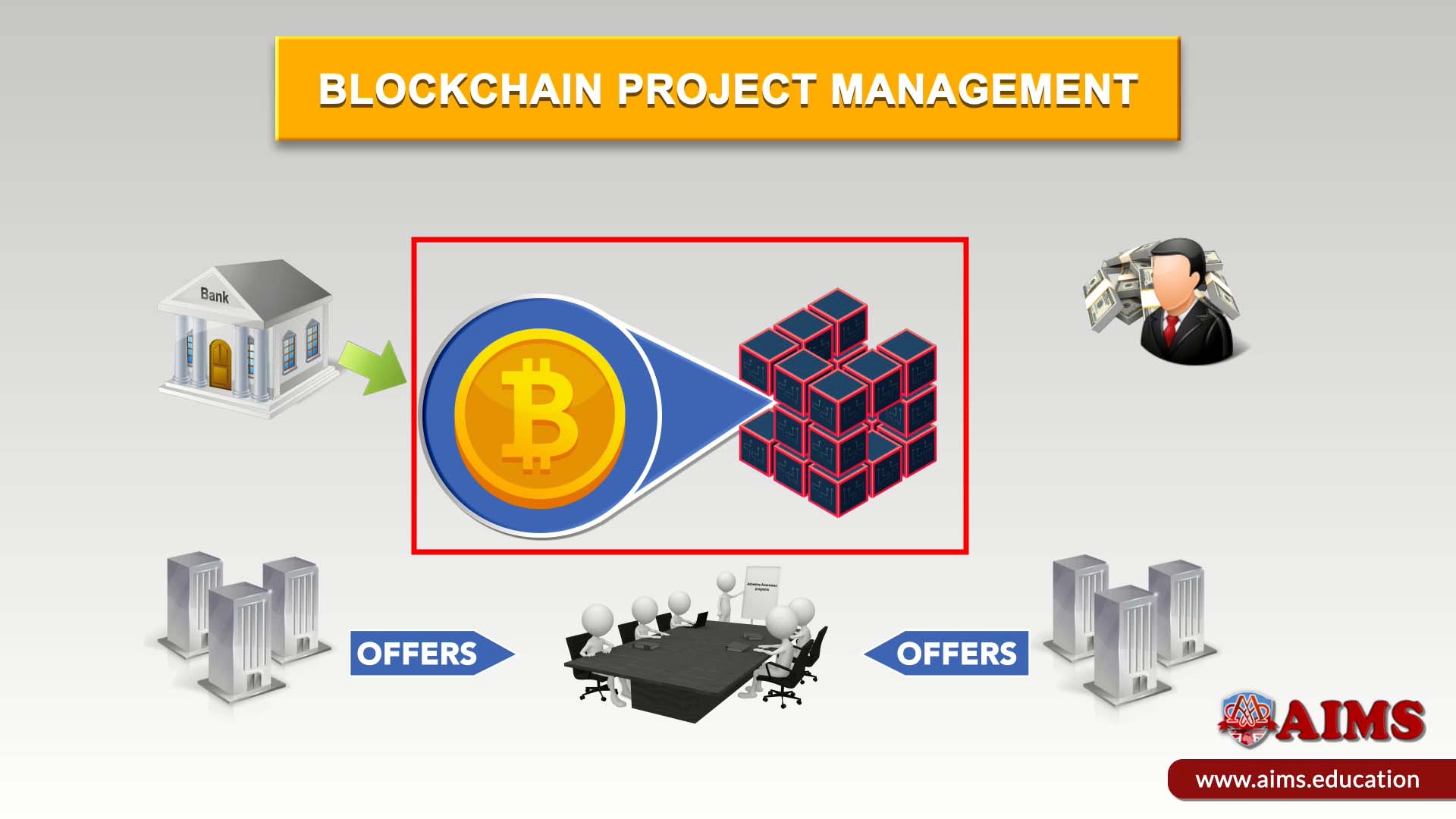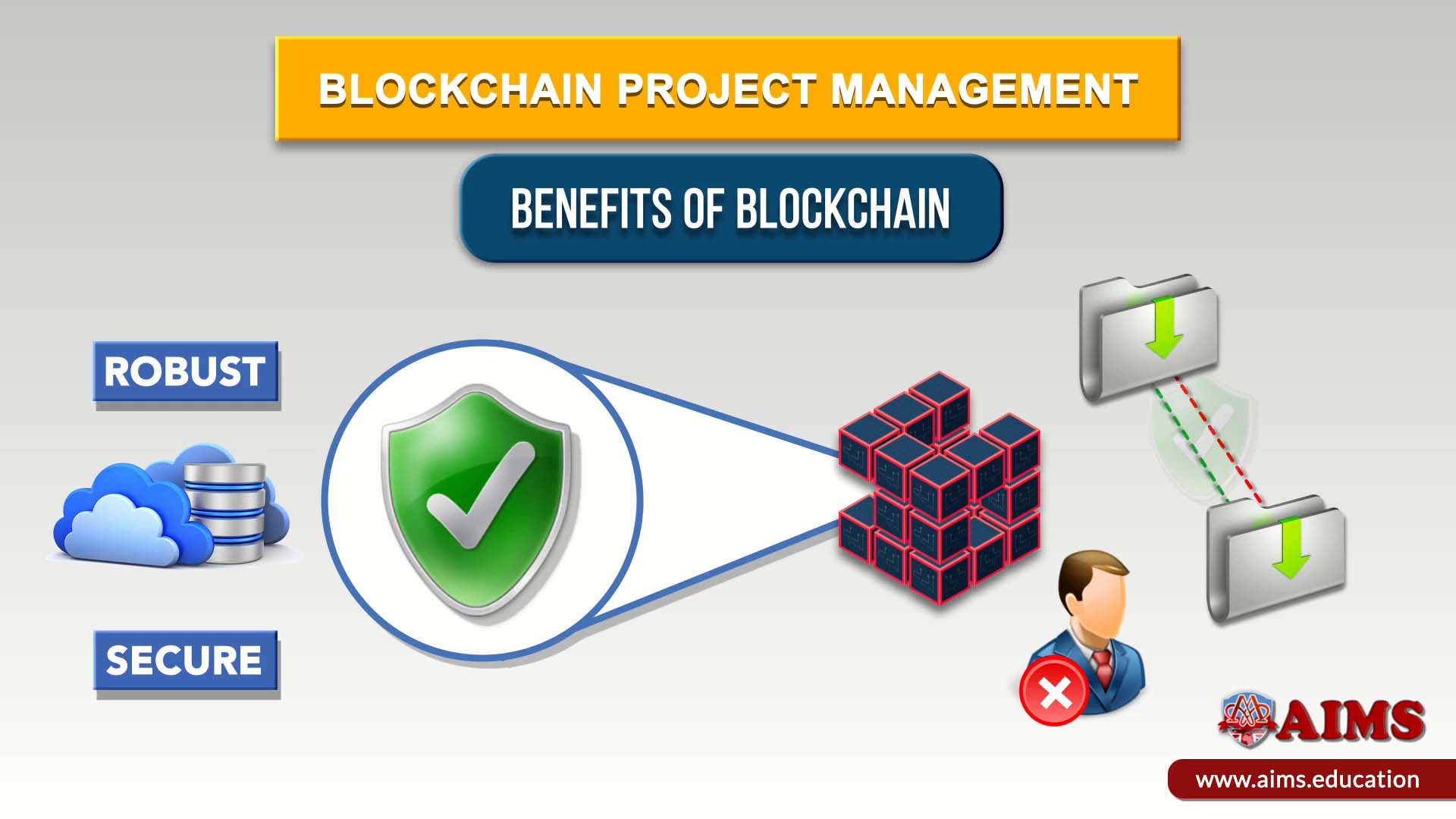What is Blockchain Project Management?
The blockchain is an incorruptible digital ledger that can securely record transactions across many computers so that no individual records can be altered without getting noticed. Blockchain project management involves managing a project using blockchain tools and understanding. While blockchains are most associated with Bitcoin, more companies are not aware of its’ project management capabilities that blockchain can offer. What’s interesting is that many organizations are looking into blockchain project management to run their blockchain projects. When Bitcoin was introduced in 2009, it was demonstrated that the only cryptocurrency can use the blockchain management system. However, a blockchain project manager can also use blockchain as a decentralized system while controlling the spread of information in their projects.
Who is a Blockchain Project Manager?
In project management, blockchain consists of several points in which people involved in the project can communicate with others. All communication, along with transactions, are recorded for full transparency. In addition, budgetary matters can be better handled as all purchases or transfers are seen by the participants. A Blockchain Project Manager is a person who creates a system that allows for input and oversight that is more efficient than traditional project management systems.

How Does Blockchain Projects Work?
At first, blockchain project management may seem like a management system that is quite similar to other means of running projects. The necessary team of people is assigned, the project is given pre-set goals, all the external factors are handled in the same general manner, and all project management phases are followed as per procedure. The various points of entry mean that the project management itself is not a top-down procedure, but rather one that pulls involvement from all stakeholders with full transparency.
The difference in blockchain project management is that all communication flows through the input of the assigned staff and no one else. This means that with everything going through so few people and all communications secured, the efficiency of blockchain project management is increased. That may seem counterintuitive at first, but the limitations imposed by blockchain project management provide substantial benefits.

Key Benefits of Blockchain Project Development
1. Security
The first benefit derived from blockchain project management is security. Because of how information is spread through the system, in blockchain projects, the data transfer is safe because of the difficulty that outsiders have of breaking into the management process. This includes cloud storage systems that will be far more robust and secure than earlier versions.
2. Reduces Risks
Because the project manager is directly involved, blockchain project management helps to reduce risk, correct mistakes, and keep projects focused.
2. Efficiency
Because those involved must transmit through the blockchain project management system, the conversation is limited to matters that apply to the blockchain projects themselves.
3. Skilled Blockchain Project Manager
By using blockchain technology, the blockchain project manager can keep things on track. They will have access to all information and can adjust accordingly when things change. The blockchain itself can handle all transactions to make them more efficient.

Types of Blockchain Project Management
The project management applications can be designed to use Blockchain technology to improve the project’s efficiency, security, and risks. In fact, some companies use blockchain project development technology to improve their project results. There are four types of blockchains in project management:
1. Public Blockchain Project Management
Public blockchains are open to everyone in the organization who wishes to join the blockchain project. As such, anyone can view or edit the information stored on the network.
2. Private Blockchain Project Management
Private blockchains are used to store sensitive information related to the project such as project management financials, sensitive records, and legal documents. Hence, only authorized project team members and stakeholders can access and edit the data.
3. Consortial Blockchain in Project Management
A consortial blockchain is a hybrid of private and public blockchain projects. The data is stored on an organizational blockchain, while the data processing and settlement happens on a private blockchain.
4. Self-Organizing Project Management Blockchain
Self-organizing project management blockchain use algorithms to ensure that the project related data is accurately stored, validated, and distributed.

Summary and Conclusion
- Blockchain offers tools and methodologies for project management, extending beyond its Bitcoin origins.
- Blockchain Project Managers create systems with enhanced communication transparency and oversight.
- Effective blockchain project management offers a new way for businesses to get important projects done on time, with greater efficiency and less cost compared to traditional management practices.
- Projects under blockchain management employ decentralized communication, fostering more effective outcomes.
- There are different types of Project Management Blockchains. They are Public, Private, Consortial, and Self-Organizing Blockchains
It will take time by companies to transform Projects into Blockchain Projects, which will have issues before project management blockchain fully in place. AIMS is a globally recognized institution where students learn to implement advanced technologies in project management. AIMS’ highly recognized project management qualifications include online project management courses, a diploma in project and program management, and an MBA project management distance education program.
Frequently Asked Questions
Q1: What is blockchain project management?
It applies distributed ledger principles to projects so transactions and communications are recorded immutably, improving transparency and control.
Q2: How does a blockchain project manager add value?
By governing decentralized workflows, aligning approvals and transactions on-chain, and reducing bottlenecks while maintaining scope, budget, and time.
Q3: How do blockchain projects enhance security and reduce risk?
Immutable, cryptographically linked records and permissioned access make tampering evident and limit unauthorized changes.
Q4: Which blockchain types suit project management?
Public, private, consortial (hybrid), and self-organizing chains—each balances openness, control, and automation differently.
Q5: When should teams pick a private blockchain?
When handling financials, legal documents, or other sensitive data requiring strict access control and compliance.
Q6: What are the core benefits in project delivery?
Greater security, lower risk, improved efficiency, and shared visibility that speeds reconciliation and decision-making.
Q7: How does communication change on-chain?
Actions and messages are captured through defined nodes, reducing noise and creating a verifiable activity trail.
Q8: Why use a consortial blockchain?
It blends public transparency with private processing to balance openness and confidentiality in multi-party ecosystems.
Q9: How do self-organizing chains help?
Automated validation and distribution reduce manual coordination and errors, accelerating feedback loops.
Q10: What mistakes stall blockchain project development?
Poor chain selection, weak governance, and copying legacy processes on-chain. Start with clear objectives and roles.
Q11: How does this improve efficiency?
Shared, verifiable records reduce redundant updates and speed reconciliation, letting teams focus on delivery.
Q12: Who benefits most?
Stakeholders in complex, regulated, or multi-vendor projects that need strong audit trails and change control.

